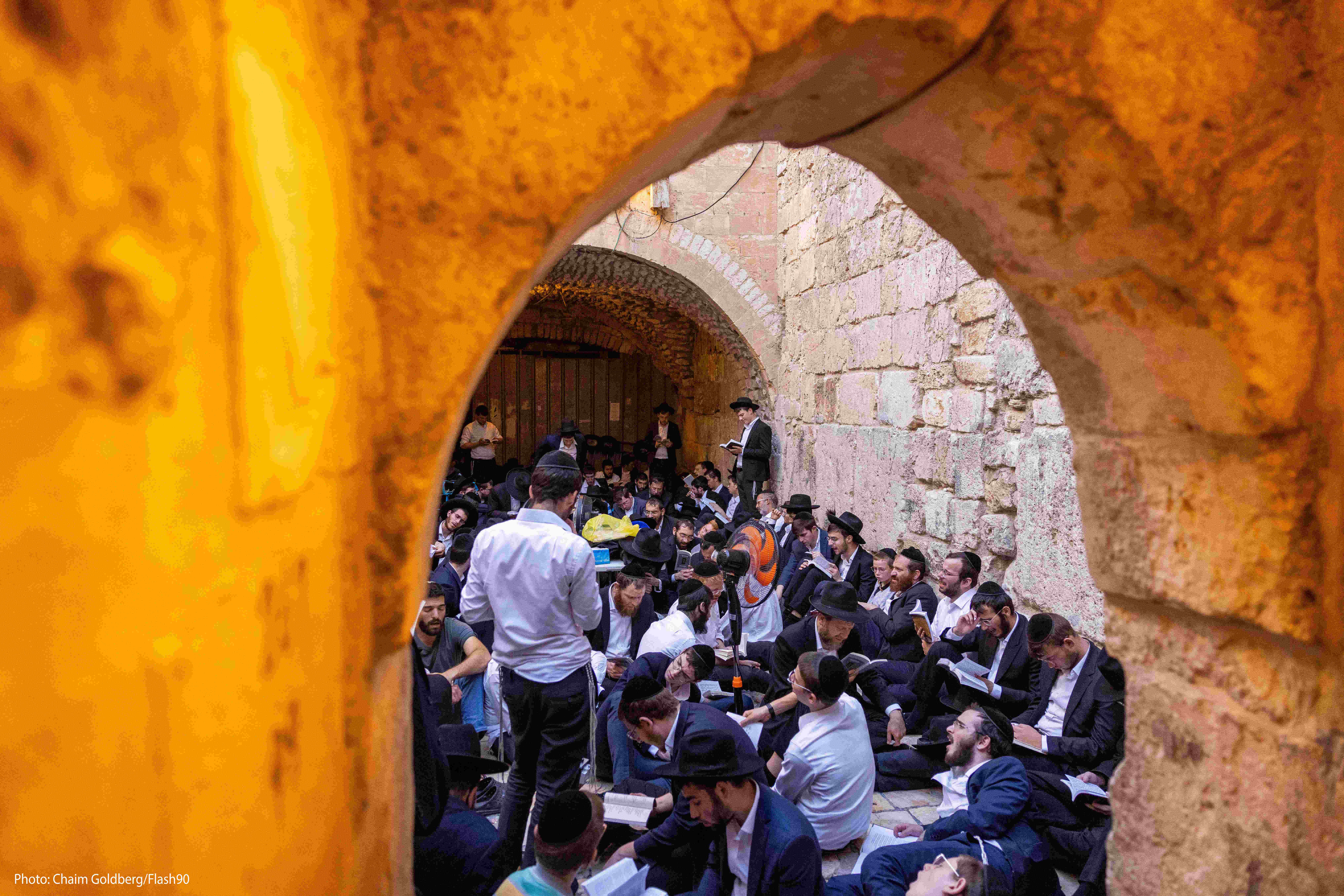Jerusalem: God’s Holy CitySample


Customs and Rituals Observed Today
If I forget you, Jerusalem, may my right hand forget its skill. May my tongue cling to the roof of my mouth if I do not remember you, if I do not consider Jerusalem my highest joy. — PSALM 137:5-6
Today, since the destruction of the Temple, most customs associated with Jerusalem revolve around remembering and praying for God’s Holy City. As the psalmist wrote: “If I forget you, Jerusalem, may my right hand forget its skill.”
After the Temples were destroyed, traditions were instituted to keep the Jewish people focused on their homeland and true destiny. For example, many Jews leave a portion of our homes unfinished or decorated with Jerusalem-themed artwork to indicate that we are not complete until Jerusalem is restored. Jerusalem is a main theme in Jewish prayer, and we pray for our return to Jerusalem three times each day. In addition, we “pray for the peace of Jerusalem” (Psalm 122:6).
The most intense Jewish ritual in remembrance of Jerusalem is the observance of Tisha B’Av, the 9th day of the Hebrew month of Av, on which both Temples were destroyed hundreds of years apart.
Since Jerusalem was reunited in 1967, we have additional customs. Since we now have access to Jerusalem and the Western Wall, on the three pilgrim holidays of Passover, Shavuot, and Sukkot, thousands gather at the Western Wall to receive the priestly blessing (Numbers 6:24–26).
A holiday for our modern times, Jerusalem Day, is observed on the anniversary of the city’s liberation and reunification under Jewish rule.
Motivated by Psalm 122:6, “Pray for the peace of Jerusalem,” many Christians regularly lift the Holy City in prayer, and some even participate in groups that meet regularly to ask God to protect the Holy City and the Jewish State. Others read Isaiah 49:22, “Thus saith the Lord GOD, Behold I will lift up mine hand to the Gentiles, and set up my standard to the people: and they shall bring thy sons in their arms, and thy daughters shall be carried upon their shoulders” (KJV), and are motivated to support the aliyah (immigration to Israel) of Jewish people living in other countries, especially those Jews experiencing the growing tide of anti-Semitism.
Scripture
About this Plan

In this reading plan, we will explore the historical and biblical significance of Jerusalem, the “eye of the universe” and “the soul of the Land of Israel.”
More
We would like to thank International Fellowship of Christians and Jews for providing this plan. For more information, please visit: https://ifcj.org
Related Plans

No More Mr. Nice Guy: Saying Goodbye to Doormat Christianity

Multivitamins - Fuel Your Faith in 5-Minutes (Pt. 2)

Christ Over Everything - Colossians

5-Day Devotional for Moms: Grace in Your Gaps

I'm Just a Guy: Who's Angry

Renewing Your Heart for Ministry

Finding Strength in Stillness

Change My Mind - Standing With Jesus in a Confusing World

Essential and Unshakable
